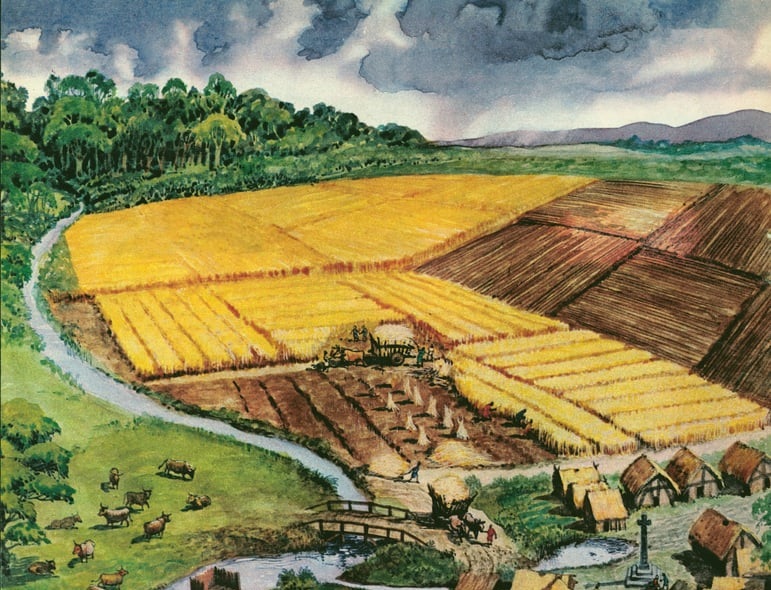Difference between revisions of "Crop Rotation"
From The Authentic D&D Wiki
Jump to navigationJump to searchTao alexis (talk | contribs) (Created page with "'''Crop rotation''' is a farming practice that involved systematic changing of crops planted in a particular field from one season to the next. Starting after the 9th century...") |
Tao alexis (talk | contribs) |
||
| Line 1: | Line 1: | ||
| + | [[File:Crop Rotation.jpg|right|525px|thumb]] | ||
'''Crop rotation''' is a farming practice that involved systematic changing of crops planted in a particular field from one season to the next. Starting after the 9th century, the method steadily gained popularity throughout the medieval period, increasing the lifespan of cultivated fields while encouraging food production and the community's general health. | '''Crop rotation''' is a farming practice that involved systematic changing of crops planted in a particular field from one season to the next. Starting after the 9th century, the method steadily gained popularity throughout the medieval period, increasing the lifespan of cultivated fields while encouraging food production and the community's general health. | ||
| + | |||
| + | Most [[Type-7 Hex|type-7]] or type-6 hexes practice [[Open-field Farming|open-field farming]], where crop rotation is only a common practice if a [[Settlements|settlement]] is present. Crop rotation is standard practice anywhere else that cultivation occurs. Overall, the effect is to increase food supply by 50% — though this usually produces a concommitant increase in population, so that food surplus remains about the same. | ||
Revision as of 23:36, 4 September 2023
Crop rotation is a farming practice that involved systematic changing of crops planted in a particular field from one season to the next. Starting after the 9th century, the method steadily gained popularity throughout the medieval period, increasing the lifespan of cultivated fields while encouraging food production and the community's general health.
Most type-7 or type-6 hexes practice open-field farming, where crop rotation is only a common practice if a settlement is present. Crop rotation is standard practice anywhere else that cultivation occurs. Overall, the effect is to increase food supply by 50% — though this usually produces a concommitant increase in population, so that food surplus remains about the same.
